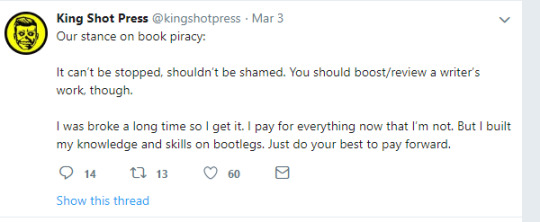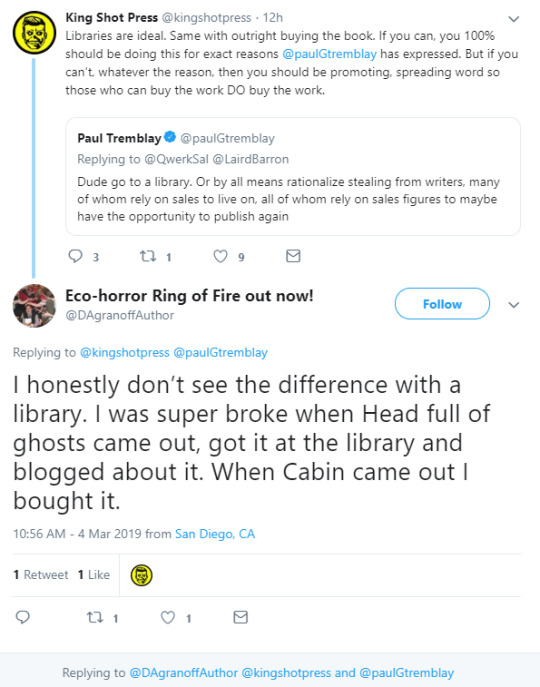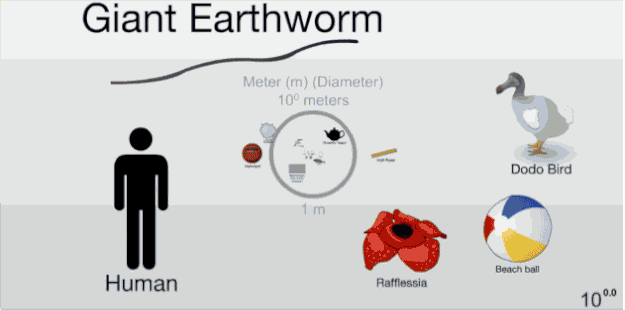#we are pro piracy because working artists do not deserve to get paid and anti appreciation because this art is trash and anti critique
Text
people who get insecure about fine art also treating any serious artistic analysis of commercial art as an exercise in who can make the most ironic comedic reaction to the idea that their object of consumption is worth anything artistically are so annoying. barbie is a creation myth there is nothing ironic about gerwigs comments on this or on her legitimately beautiful film she simply possesses the ability to have sincere emotions towards her interests
#we are pro piracy because working artists do not deserve to get paid and anti appreciation because this art is trash and anti critique#because this trash art that is worth no money and deserves no respect is also the most important thing in the world and
6 notes
·
View notes
Text
Look I'm not anti-pirating (especially when big corporations keep erasing shows from streaming and it's impossible to buy them and piracy is the only way they're preserved, and so on)
but i fuckin' hate how a lot of people in the pro piracy discussion have no fucking respect for artists and think they don't deserve to profit off of what they poured sweat and blood into.
"pirating is rejecting an idea someone owns a work of art"
uh yeah. people do own works of art??? They do own the art they make??? They do deserve respect and to have their labor recognized??? what the fuck are you talking about. If someone makes something, you don't own it. They deserve to get paid for it. Are you saying is someone spends years of their life crafting a beautiful chandelier or piece of jewelry or something like that they don't own it, their work doesn't matter, they shouldn't get anything for that, it's yours now. We don't live in a socialist paradise. People need compensation for labor.
If I made a book, it's mine, and I would like you to buy it or get it from the library, because I need money to survive. Most authors are living hand to mouth. Most are working multiple jobs and barely have time to write. If you steal from them, you're taking any chance they might be able to keep creating. We're losing authors to exploitative corporations, and we'll keep losing more if y'all continue to act like their work has no value. They won't be able to keep creating.
And look, I'm not innocent. I obviously use scans and that's often a single creator.. But I can own that I'm not morally justified in doing it. I'm wronging the artist. I'm not doing it out of some selfless commitment to socialism or whatever, I'm doing it because it's convenient and scanning every page from a book I own would be hard. I would never justify it by saying the author's work is meaningless and you can't own the stuff you poured your sweat and tears into, because that's ridiculous. Sure, I'm poor, you're poor... and so is the artist usually.
Whenever I'm able to buy someone's work digitally, physically, or at least check it out from the library, I do. Especially if I've relied on scans in the past. I know that's the respectful thing to do.
Nobody can stop you from pirating from small creators, but it's obnoxious to act like the artist doesn't matter and you're a hero. You take from artists and say they don't matter, no one will want to be an artist. It's as simple as that.
#might delete#as a creator it's so demoralizing though#i have no moral high ground here but god#don't try to make yourself a hero
24 notes
·
View notes
Note
it’s not “robots” using AI to make art, it’s humans using AI to make art. saying AI art is “robots making art” is about as braindead of a take as saying art made in Photoshop is “robots making art”
I get there is a lot of nuance here, and I'm not wholly against AI tools in making art but how casual you're being about the uncredited & uncompensated labor of artists is deeply upsetting.
Comparing AI Art to anti-piracy politics. I'm pro-piracy, but being pro-piracy as a form of anti-consumerism politics & art preservation is not the same as saying you have the right to sell things you pirated for your own profit. Or even plagiarism. I would hope you can see the difference in piracy & taking credit for the work of others. As lifting the work of others is what this algorithm needs to do in order to function.
Comparing AI Art to seizing the means of production. Writing an algorithm is labor. Painting a picture is labor. After that you're in for much different debate: Who owns AI generated Art? The person who wrote the algorithm? The person who entered the prompts? How about the person who seeded the base data for the peice, you know, an actual artist. Because per usual, the actual artist seems to be the last person to be getting paid. You had a problem with the seeded art being compared to farming but if the people who grew the grain, baked the bread & delivered the materials all deserve compensation, why are you so quick to credit the person who wrote the program, the person who entered the prompt, but exclude the people who created the art that informed the algorithm? They're all necessary to this process but one group is getting shafted. So yes, in the analogy of the farmer, cutting out the artist that made the art that seeded the algorithm is like a robot stealing grain from a farmer. Marx wrote a lot about the quality of the human soul, and the parts of the human experience that get in the way of sheer productivity; these are things Leninists like to ignore. Marx was pretty clear about putting physical demands like food, clothing, & reproduction, over emotional demands, like entertainment, love & joy would be a gateway to fascism. If you're going to coldly say "food is more important than happiness" at some point you have to admit you're just a fascist who loves rugged individualism.
Comparing AI Art to outsider art. We've already had cases where an AI can replicate a single individual's style, only make it just different enough to cut them out. You used marxist rhetoric but you veered offcourse when you referred to money generated by art as "profit." I think you were trying to say its fine to crib someone's work if that person is already rich; but there are a lot of poor artists & the majority of work being seeded in these algorithms was unpaid: And no, that doesn't make a work 'free to steal' either.
If we hypothesize about tool-assisted art outside of capitalism, surely the tools to make AI Art would exist, but AI Art itself would not. Because why would it? Its an attempt to maximize profit with as little effort as possible, as seen in those "Family Finger" children's videos that plagued youtube for a while. That "Alice & Sparkle" book is not a genuine expression of anything human. And I can't imagine anything as dystopian as using letting artificial intelligence educate small children.
3 notes
·
View notes
Text
Arrr! The Pirate Library
Yesterday, someone over at King Shot Press found himself in a little hot water over some tweets that were...not pro-piracy, I guess, but not AS anti-piracy as some people wanted.

It turned into a whole thing. Because this is the internet, so one person’s opinion on piracy shatters too many worldviews or something.
Frankly, it turned into a big mess. I wouldn’t want to get involved, until...

And when someone said “I honestly don’t see the difference with a library” I felt compelled to say a few things. And to ask myself: Why is checking out a book from the library different from piracy?
Before we get into it, however, I just want to say that the opinion of someone at King Shot isn’t something that induces anger in me. I think it’s an opinion that I agree with in some ways and disagree with in others, and I’m not looking to pile on here. After the library bit, I’ll share some of my opinion on piracy, in general.
1. Scale

When piracy puts a book up online, an infinite number of people can download, possess, and read it simultaneously.
When a library buys a print copy of a book, that’s obviously not true. That book can only go out a limited number of times (50 checkouts is usually too many for most books, physically). It can only be held by one person at a time. And, it can only be in any person’s possession for a limited period.
When a library buys an ebook, similar rules will apply. Overdrive/Libby, the most popular library ebook service, does require us to buy licenses for every copy. Not every title, every copy. So, if we have two copies of something, we bought two. If we have one copy, only one person can have it out at a given time.
Hoopla, another service, has a different model. We don’t buy individual licenses for individual items, and any number of people can have it at the same time. However, the time period is limited, and users are limited to a given number of titles per month. So, one can’t use library service to stockpile a bunch of books that they keep forever.
Piracy and borrowing might not look different from a user POV, but from a view that’s bigger than the individual, the difference is big enough to start having its own gravitational pull.
2. Purchase

It certainly seems like I can check out something from the library for free, so what’s the difference between that and downloading it for free?
The library isn’t “free.” It’s a pre-paid service, meaning you’ve already paid for it, it’s just a matter of whether or not you make use of it. Much like a road, street lamp, or public park. You pay for those things, and then you choose whether or not to make good use of your money.
You’ve also paid for ebooks held by your library. Your tax money goes to the library, the library buys ebook services.
Now, in theory, SOMEONE paid for a copy of a book at some point before it was up for free online. So there’s a similarity here. However, let’s look more closely:
If a library buys a title and it’s very popular, they will buy more. Our system has a policy that says we’ll buy another copy of something for every 5 simultaneous requests placed. If 50 people requested The Martian when it came out, our guiding principle is that we should have at least 10 copies.
There’s no such system in piracy. That one copy is all that’s ever purchased.
To cross over with the above argument about scale, let’s say that my library system bought 10 copies of The Martian. Consider that this is ONE library system serving a portion of one U.S. state. Even if we were overly generous, we could say we cover a quarter of the state. Multiply our purchase four times to cover Colorado, then multiply times 50 to cover the U.S., all of a sudden you’ve got 2,000 purchased copies of The Martian. This is very quick and dirty math, and it’s almost certainly a lowball.
Also, you need to factor in that libraries will be replacing copies of books. So, in the 5 years or so since The Martian came out, the initial number has likely doubled.
There’s another effect here. Once The Martian is a hit, you’d better believe libraries are all over Andy Weir’s next book, Artemis. Pre-orders play a big part in sales. Pre-orders count in the first week of a book’s sales, and large pre-orders help a book climb onto bestseller charts.
You might not care about putting money in Andy Weir’s pocket, and I’m not here to argue about that (for THAT portion, see below). It does warrant talking about, however, in terms of the difference between pirating material and borrowing it from the library. The library is a positive factor in the economics of books. Piracy is not.
3. Mutual Support
There is oftentimes an argument for piracy that’s about piracy being a positive force for folks who can’t afford books. Let me tell you why using your library is better.
The library works like this: you support us, we support you.
You come in, check out some stuff, and that gives us better stats to take to the local government and say, “See, this is important. The community needs this.”
When you pirate something, we lose out on those stats. We become less busy. The local government sees that the library needs less cash. And then, that economically destitute person who can’t afford books? Where do they go now? Piracy? Bad news, economically destitute people are far less likely to have a computer, an internet connection, and maybe even a place to plug a computer in if they DID have one. Oh, and they probably don’t have a fancy-ass e-reader either.
Piracy may be an option for some people who can’t afford books, but if you are concerned with the availability of books to all, the library is a better solution.
~
Let’s talk about some of my personal feelings on piracy, in general.
We Hurt The Ones We Love
I spoke to a very well-known author. This author told me that they’ve had some contractual trouble with their publisher because this author’s books are VERY frequently pirated, which means that the books are popular, but the publisher won’t pay as much because they will have a hard time getting a return on their investment.
Pirating material can have a ripple effect that makes it more difficult for the artists we love to put out more of the material we love. Some might see it as hurting a large, faceless company, but the truth is that we’re hobbling someone whose work we love.
The Money Question
When talking about piracy, there’s always an element of class warfare going on. Why should someone pay the multi-millionaires like Metallica for an album they had to work 2 hours to afford? Why do I care if Harper Collins loses out on a few bucks?
I’m about to enter some uncomfortable territory because the stats are impossible to find. Because, frankly, piracy is something that many people wouldn’t admit to doing. It’s pretty difficult to get a good bead on this whole thing. I tried to find out whether or not piracy is a result of economics, and I could find no evidence supporting or denying that. What I will speak from is personal experience. Because that’s all I’ve got.
Yes, there is probably some kid out there who is economically destitute and the only way he’s getting his hands on sweet books is through piracy.
However, my personal experience tells me that a whole lotta piracy is committed by people who could afford the things they’re pirating and end up stockpiling things they never use.
Let me put it like this: I don’t really have a problem with an individual sneaking into an art museum because they can’t afford to pay their way, and they really want to see the art.
But I think it would be wrong, while sneaking into the art museum, to grab yourself something from the gift shop. Even something small you don’t need.
My morality on this is somewhat flexible, and somewhat capitalistic. If you genuinely can’t afford books AND you’ve exhausted the options to come about them legitimately (libraries, friends, etc.) then I don’t think I’d have a problem. However, if you, like most people, justify the collection and hoarding of electronic files that you could afford to come by legitimately, you’re in a bad moral spot.
Short version: If you are that person who can justify piracy because you pirate only that which you actually view, and you wouldn’t be able to experience art otherwise, you get a pass. But if you’re the person justifying it because someone else is probably too broke to buy books, therefore it’s okay for YOU to pirate, I respectfully disagree.
The Value of Art
Some piracy is justified through saying that pirated things don’t necessarily equate to income loss because they wouldn’t have been purchased anyway. In other words, maybe I would pirate a movie I would never actually pay to see.

*Ahem*
Sure, like Speed Racer. Maybe I wouldn’t pay a single dollar to see it, but I would watch it for free. This means that the makers of the movie don’t really lose anything. Maybe I wouldn’t PAY for a new Metallica album, but I would listen for free.
For books, I don’t know that this is nearly as applicable. Who is going to put in the effort to read a book that they wouldn’t pay the paperback price on? It’s not a passive medium the way movies and music are. The book isn’t just going to happen in front of you. You actually have to do some shit to get the information inside your head.
The real issue on this point is that of de-valuing of art.
Writing a book is hard work. Damn hard work. I think writers deserve to be paid for their work.
There’s a long-standing tradition of de-valuing artistic work as work. Because artists aren’t out there busting concrete.
But I’m here to tell you, art is work. It’s not a blast to sit down and type out a couple hundred thousand words, edit them, re-edit them, send them out for publication. No part of this is more fun than watching Speed Racer.
The writers you want to read, while you’re enjoying a book, binge-watching something, doing whatever you like to do, they are working, many of them doing so in addition to their regular day jobs. Many of them in addition to being parents, partners, and doing all the same bullshit we all do every day.
I also feel, in this time of plenty, that there’s really no need to watch movies you hate, listen to albums you don’t like, and read books that’re no good. If it’s not worth the cost of admission, it’s not worth your time either. Just leave it be and move onto something else you’d pay for.
10 notes
·
View notes